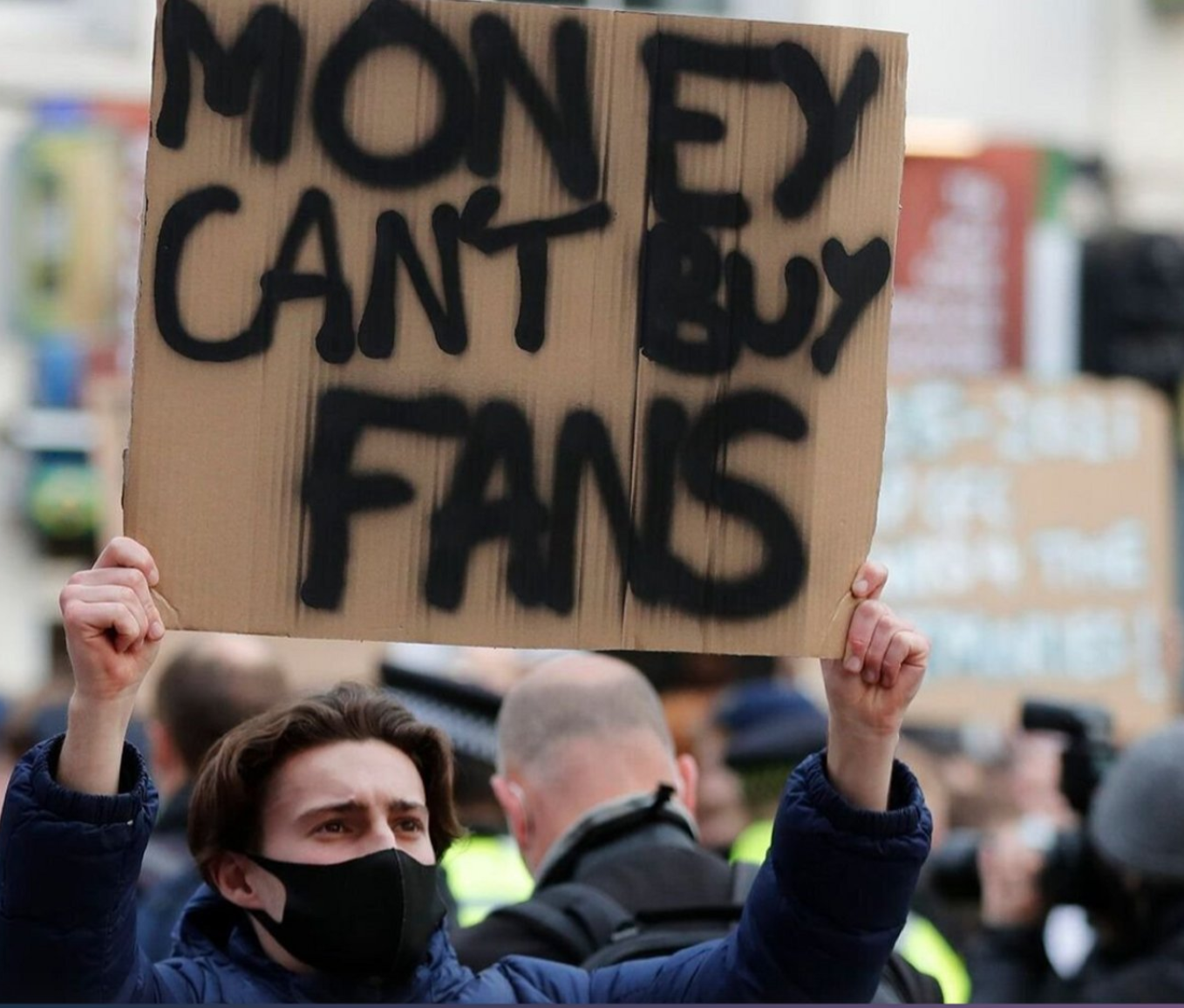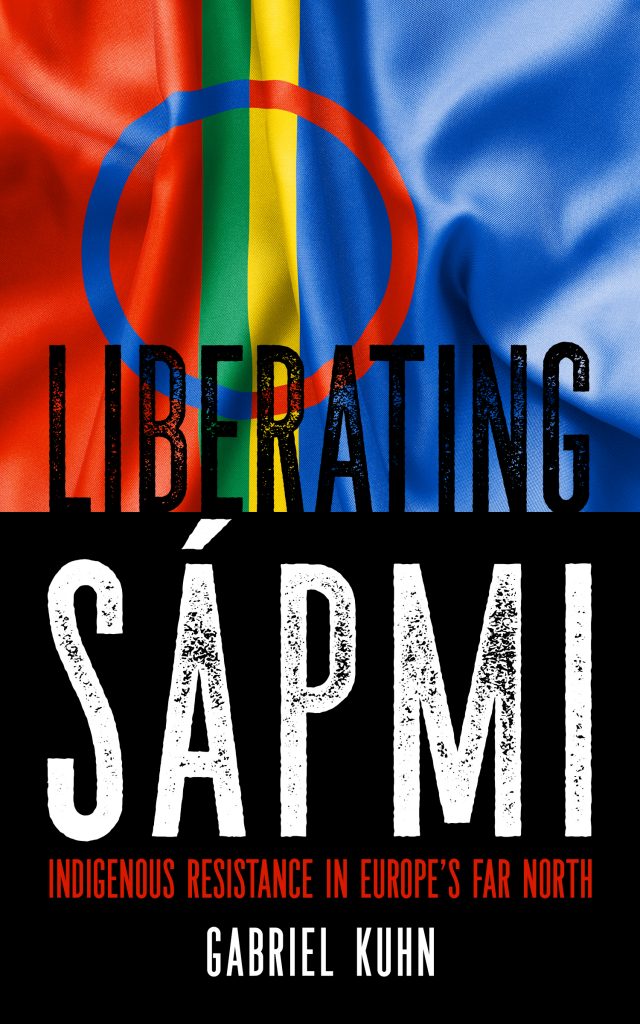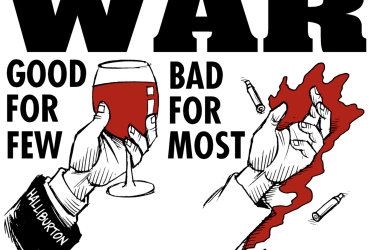Even if there isn’t a Super League, football is far from being saved. It sold its soul a long time ago
By Gabriel Kuhn
Originally posted on Forum.eu
April 2021
picture alliance / ASSOCIATED PRESS | Frank Augstein
What a ballyhoo. At midnight on 19 April, 12 European football clubs, six from England and three each from Spain and Italy, announced the foundation of a “European Super League”. It was supposed to be a closed group, with no relegation. Other teams were expected to join. Two days later, all of the English clubs have pulled out, and the plans seem to be off the table. What is this all about?
Proposals for a European breakaway league of the top clubs are nothing new. They’ve been in the making for a long time and have regularly been used as threats during negotiations for ever more lucrative TV contracts or UEFA reforms to meet the top clubs’ interests. Yet, Monday’s announcement was a bit of a publicity stunt. It came on the very day that the UEFA executive committee passed a reform of the Champions League that – make no mistake about it! – introduced a Super League Light. Unsurprisingly, UEFA president Aleksander Ceferin did not take lightly the breakaway ideas, calling them “a nonsense of a project”.
The hypocrisy of football administrators is stunning. It’s as if people insist on playing a game of Monopoly only to get irate when someone might be leaving the table with more money than them. Of course, the Super League plans are all about money. Football has been all about money for some thirty odd years. Pundits are concerned about “fairness” when no one can be relegated. But is it fair that the annual budget of a Premier League club is tenfold that of an average club on the European continent? Is it fair that in the Champions League Europe’s top leagues have four spots reserved, while 80 per cent of the national leagues have none? Is it fair that the contenders for a league title in most of the European leagues have shrunk to less than a handful because the economic divisions within the leagues leave little space for competition?
The Super League plans – at least as they stand now – seem to be unravelling because the opposition might have been more intense and widespread than what the founders had bargained for. So far, the rich have gotten away with each step that has cemented their power and increased the gap between themselves and the less well-off, simply by promising even more “entertainment”. The Super League might have been a step too far. Within 48 hours, all six of the English clubs pulled out. But why? Because of the resistance of the fans, as many romantics would now like to have it? Hardly. Where plenty of money is concerned, everyone gets involved, even the British government. And it was against their plans, too.
So-called modern football is in a deep economic crisis. The announcement of the Super League was an expression of panic, as the football bubble has been revealed for what it is. Real Madrid president Florentino Pérez, who was presented as the Super League’s first chairman, stated that, without the Super League, the big clubs would be “dead by 2024”. The opposition from others who have a big stake in the footballing world – rivaling clubs, football associations, television networks, and, yes, government ministries – suggests a desperate battle over shrinking market shares. This is what we are witnessing.
And now? Are we really supposed to believe that the “soul” of football is going to be saved if we manage to prevent the Super League? Please. The soul of football has long been buried under stadiums that equal shopping malls, television networks that make people pay to follow the game they love, and pointless competitions that fill the pockets of folks who couldn’t care less about the sport. Even the remarkably candid reaction to the Super League plans by former Manchester United player Gary Neville (“criminal act”, “joke”) appears in a different light when considering that it was presented on Sky Sports, part of a media conglomerate that has never served the interests of the fans but only its own. As a friend of mine wittily remarked, we seem to be living in a time when “Sky, VAR and oil money are the bedrock of the people’s game.”
The fan protests against the Super League have been uplifting, but to really reclaim the soul of football, we need a broad social movement that not only protests the worst excesses of the modern football industry, but its entire foundation. The game needs to be in the hands of those who play and truly care about it, not the ones seeking power and profit. This will require boycotts and marches, but also, and perhaps most importantly, concerted efforts to build an infrastructure where sportsmanship, community, and joy take centre stage, not corporate sponsors, tacky award ceremonies and unbearable pregame shows. The current movers and shakers of the footballing world aren’t the only problem. There is also celebrity culture and the overall commercialisation of our lives. It will be a tough battle. But it is our only chance.
Or is it? In a 2017 interview for the Doing the Rondo blog, I suggested that an “implosion” was the most likely way for modern football to end. The rumble over the Super League might just indicate that such an implosion is near. That, at least, would be a good thing.
Gabriel Kuhn is an author, translator, and union activist. He has published widely in English and German. His texts have been translated into more than a dozen languages.







